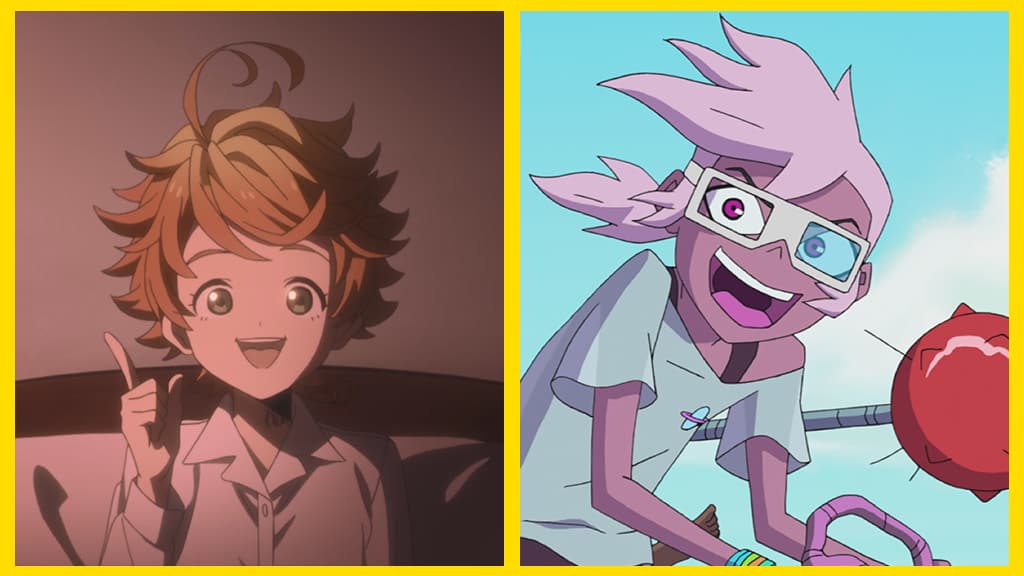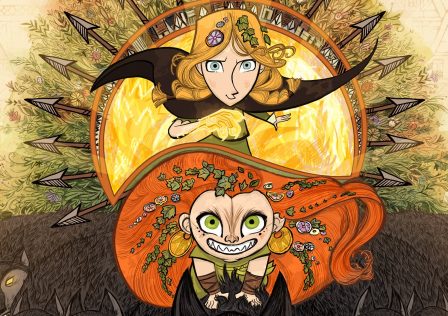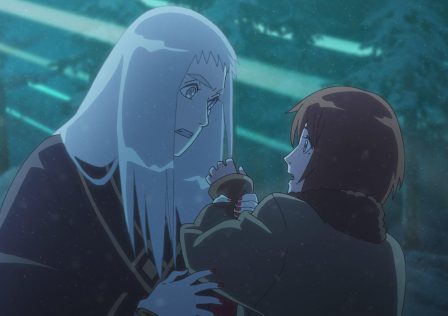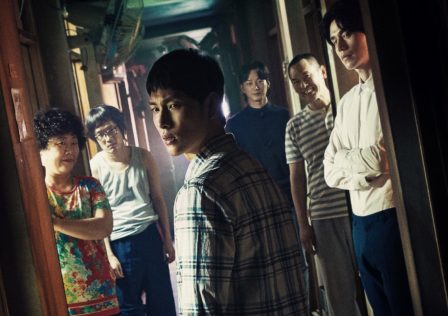I grew up seeing female leads in television shows as role models. Wait, who am I kidding? I still do.
The paltry few women-led, well-written TV shows meant I only had Lorelai Gilmore to look up to in the past. But now, with the golden age of TV amidst the streaming war and the growing force of women storytellers in the industry, there’s a galore of inspirational leads that fit no mould and take no shit.
There are the two cops, Detective Karen Duvall (Merritt Wever) and Detective Grace Rasmussen (Toni Collette), in the Netflix series Unbelievable. Their incisive intelligence, refreshing methods and internal struggle with the justice system made for such a riveting watch that I – kid you not – had the urge to sign up for the police academy. I mean, they are so cool. And yes, that was a legitimate gush.
Then, there is Miriam Weissman (Rachel Brosnahan) from Amazon Prime’s The Marvelous Mrs. Maisel. Her rapid-fire wit is reminiscent of Lorelai Gilmore (both Gilmore Girls and Marvelous share the same creator, Amy Sherman-Palladino), but Miriam is very much her own person. So much so that she defied the conventions of her time to tell jokes – cue old-fashion gasps – on stage.
I also often find myself asking, WWJD? As in, what would Jane do? I’m talking about Jane Gloriana Villanueva (the magnetic Gina Rodriguez) from Jane the Virgin. She may not always do the right thing, but has just enough earnestness, spunk and anxiety in everything she does that made her life as a romance writer with two hot men in her orbit, while warding off a criminal mastermind, very much a compass for my slightly duller (okay, very much duller) existence.
But, strangely, the current two beacons in my head now are not grown women, and technically, not even flesh and blood. They are over half my age and animated – both figuratively and literally. One is Kipo from Kipo and the Age of the Wonderbeasts, and the other is Emma from The Promised Neverland (both shows are on Netflix).
The two girls are at the cusps of entering teenhood. Both celebrated their birthdays in the first season; Kipo just turned 13 and Emma has turned 12. Yet, Circumstances are forcing them to grow up overnight. Or would have, had they been normal people. But Kipo and Emma are made of groovier stuff. In the face of survival-of-the-fittest, they do not succumb to obvious – some would say ‘grown-up’ – solutions.
In Kipo and the Wonderbeasts, Kipo (Karen Fukuhara) is an average, slightly nerdy girl who has been living underground all her life (yes, in the show, that’s normal). But a giant Mute, or mutated creatures, destroys her home. The chaos drove her above-ground, where she encounters dangerous strangers and dangerously cute critters. She promptly adopts a motley crew (or maybe it’s the other way round) to search for her father, while trying to evade the capture of a human-harvesting villain. Her newfound friends are used to life-threatening situations, and are thus cautious and sometimes selfish. Kipo’s survival instinct, however, is powered by friendship, communication, and — in more than one occasion — sick tunes.
Emma (Sumire Morohoshi) in The Promised Neverland would have loved her. Based on on a wildly popular manga of the same name, The Promised Neverland is set in an idyllic orphanage by the woods, run by a smiling guardian called Mama. Emma and her two best buddies, Norman (Maaya Uchida) and Ray (Mariya Ise), are the oldest and smartest kids of the lot.
Emma is your typical shounen protagonist – a wide-eyed straight arrow who has a comical facial expression for every situation. But her eternal optimism is put to test when she discovers the truth about the home she lives in and loves.
Being a sunny source of hope in treacherous situations, Kipo and Emma may be regarded as Pollyannas, which describes characters – usually female – who are unrealistically cheery come what may.
The term came from the book Pollyanna, which is about an orphaned girl moving in with her wealthy aunt and proceeded to radiate gladness among townspeople. Pollyannas are a common appearance in creative works – bearing resemblance to the genki girls in Japanese animes and mangas. The relentless sanguinity and naive idealism of these cheerleader-in-an-apocalypse characters are often seen as strenuous, saccharine and insufferable. Being called a ‘Pollyanna’ is, as The Atlantic’s Ruth Graham puts it, not a compliment.
I must say that I, too, usually find Pollyannas unbearable. They join an already-long list of female characters with weak tethers to reality, written not to be fleshed out but to fulfil a function – in the Pollyanna’s case: to cheer the male protagonist on while accentuating his aloof awesomeness. This may not apply to all of such characters out there, but nonetheless, I squirm inside whenever one of them appears on screen.
Kipo and Emma elicited the same response within me in the early episodes. Not another girl with no grasp of how the real world works, I groaned. But the feeling soon dissipated; the supposed-Pollyannas showing me Power in their own terms.
SPOILERS AHEAD
Every idealistic protagonist has a badass realist by her side to save her – ahem – tail. For Kipo, the dour BFF is Wolf (Sydney Mikayla). Having lived on the Surface all her life, Wolf sees danger everywhere and would not hesitate to bring it down with her deadly weapon. In fact, her only weakness seems to be Kipo, who insists on conversing with hostile creatures or, in really desperate situations, playing music at them.
I’ve seen this before. Usually, this type of pairing would leave me just as frustrated as the sullen sidekick while the protagonist leads everyone to their death, or would have if not for a huge stroke of luck (or said sidekick being able to fight really well).
But in Kipo and the Wonderbeast, violence turned out to be the wrong answer – not a common occurrence in a post-apocalyptic world. Sure, Wolf’s superior combat skills got them out of a few sticky situations. But it was Kipo’s ability to connect that led her troupe to avoid unnecessary bloodshed.
When captured by the Timbercats, which wanted to hand the humans to the villain, Kipo seeks out the cats’ missing leader to have a heart-to-heart talk. When faced with the raging Mega Monkey that destroyed her home, Kipo had planned to distract the animal with music so that Wolf could launch a sneak attack, but promptly called off the ambush when the Mega Monkey responded to the tune. When Kipo found a tied-up Jamack, the sharply-dressed and heartless frog that tried to send her and her friends to their death, she decides to free him even as he continues to be a threat.
All of these split-second renegades to logic were not without hesitation, and this is key – Kipo is not delusional to danger, but she chooses to react differently. And all the peace she brokered, all the wars she did not start, would later prove life-saving.
Emma also has tough choices to make. She found out that the idyllic orphanage they live in is actually a ‘farm’ that raises children as livestock to be fed to demons. Emma and her two best friends, Norman and Ray, were determined to escape. The problem is that there are 37 kids altogether, some of them toddlers, who are likely to slow down the escape or worse, doom it to failure. On top of this, the orphanage caretaker, the shrewd and terrifying Mama, is on to their ploy.
Ray is adamant to leave the younger children behind, and he makes valid points: the children love and depend on Mama, and even if they do manage to escape, they may not survive in the world beyond the orphanage.
But Emma insists that they cannot abandon anyone in their ‘family’. Frankly, it’s hard to see how Emma would be able to pull off such an ambitious feat. The orphans live a good life and believe that every time one of them leaves the orphanage, it is because they have been ‘adopted’. Telling such a young lot the truth would be complicated. There is no predicting how they would react, and Mama is already on high alert, hence it is understandable why Norman and Ray are reluctant to let the cat out of the bag.
Time and again, Emma would face hurdles that question her one-for-all idealism – that they can all escape together. Yet, unlike the typical paragon who would spout a righteous speech and somehow rally a sceptical troop, the resourceful girl leverages her intelligence and perceptive understanding of the circumstances to find solutions.
In the end, it was the mutual trust that Emma, the kind and tough big sister to her younger ‘siblings’, had forged that helped them scale the biggest hurdle of all.
Kipo and Emma are not Pollyannas. They are Hopepunk personified.
In a Tumblr post, the novelist Alexandra Rowland declared that ‘hopepunk’ defies ‘grimdark’, which is a storytelling trend characterised by a messed-up world with messed-up people doing messed-up stuff to each other. The setting is gritty and bleak, the tone pessimistic and nihilistic. Think Game of Thrones, Joker, or Blade Runner.
“Hopepunk says that kindness and softness doesn’t equal weakness, and that in this world of brutal cynicism and nihilism, being kind is a political act. An act of rebellion,” writes Rowland.
For Kipo and Emma, this is certainly true. In them, we see that kindness is far from a weakness, and definitely not the same with blindness and delusion. They chose goodness not because it is simply what protagonists do, but because they trust that they can defy what has shackled humanity – selfishness in the name to protect ourselves.
Julia Breur, a clinical psychotherapist in Boca Raton, Florida, explains how protectiveness and defensiveness are closely tied to human development: “We want to protect who we are and what we think, and we can become rude or even curt to others in order to protect our self, other people, and things we care about. Some remain stagnant in their human development as protective and others continue to develop with the realisation that they can protect by being kind.”
In a time when countries (including my own) are casting out human lives – migrants and refugees – to justify self-preservation, Kipo and Emma may be the political heroines we need.
Also published on Medium.

writes about pop culture with the suspicion that it is actually writing her.



